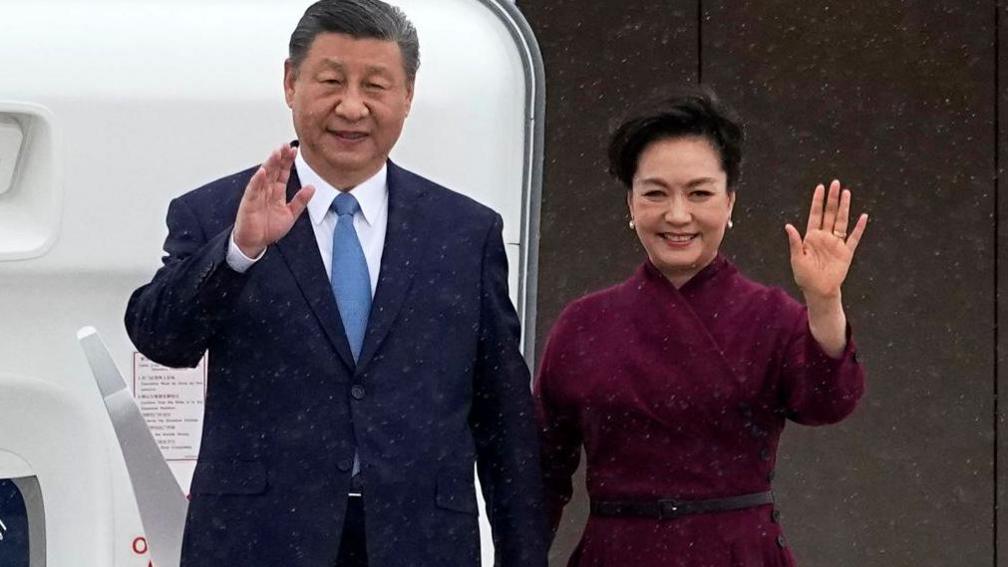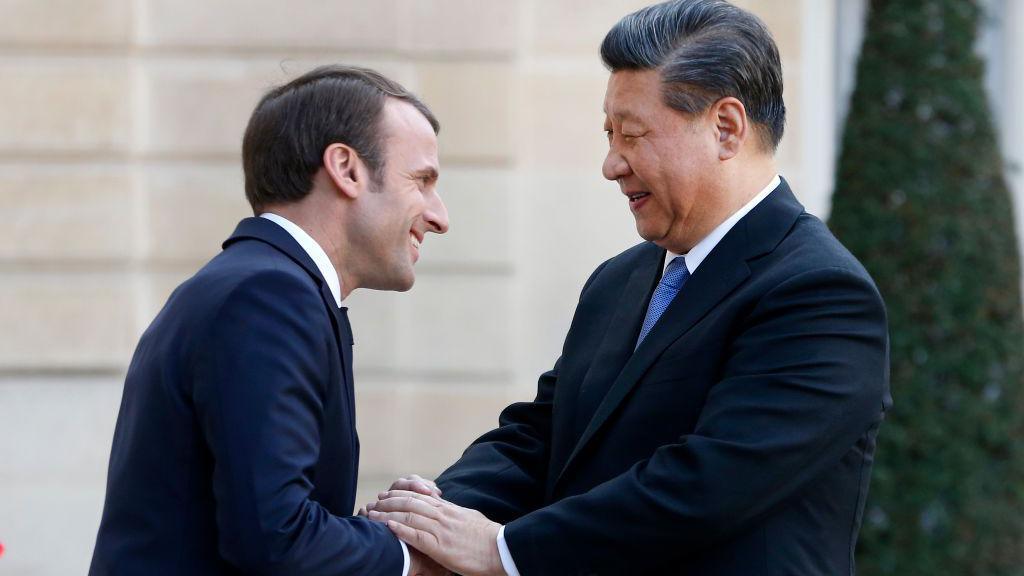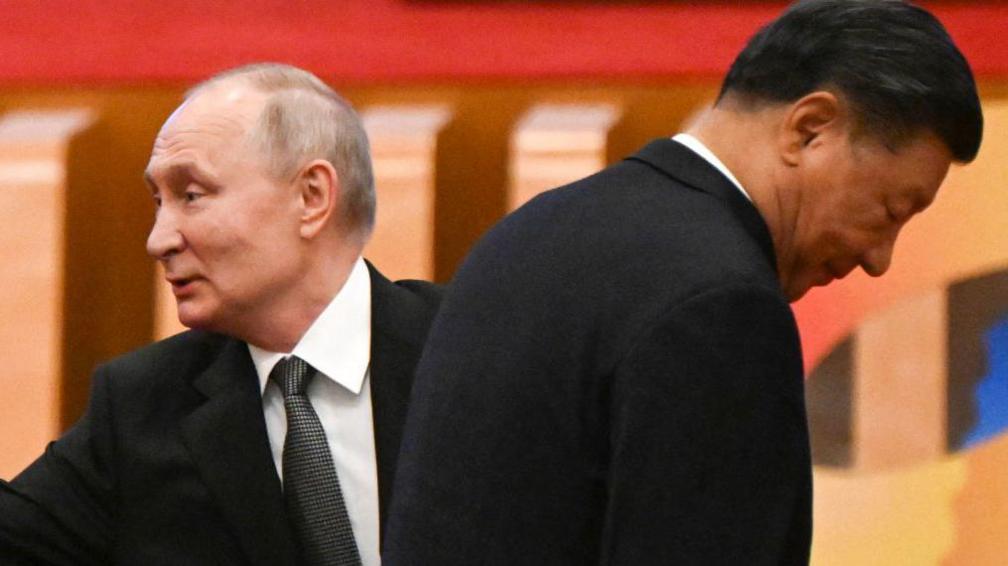Ukraine, brandy and EVs top the agenda on Xi's charm offensive

Xi Jinping and his wife, Peng Liyuan, arrived in France on Sunday for a state visit
- Published
Xi Jinping has hailed "new vistas" in China's relationship with France on his first trip to Europe in five years - one that feels much like a charm offensive.
Mr Xi will be looking to avert the trade war that is looming with Brussels, driven by fears of cheap Chinese electric vehicles entering the European market.
The West also accuses China of helping Vladimir Putin wage war in Ukraine by supplying technology and equipment for the Russian military.
Both issues echo Washington’s words of warning to him in recent weeks, but it is not what Mr Xi wants his own people, or indeed those in France, to hear.
Instead, he is trying to win over the French and bolster China’s influence in Europe to counter any narrative coming from the United States.
He will also meet European Commission President Ursula von der Leyen during his visit to France. She has embraced a policy of "de-risking" from China, which includes tougher talk and cutting Europe's dependence on Chinese imports and tech.
Later this week, he will make stops in Serbia and Hungary, allies of Moscow that have courted Chinese investment.
Mr Xi will spend most of Monday in talks with French President Emmanuel Macron.
Mr Macron will want to press Mr Xi on Beijing's friendship with Moscow - and how far it is prepared to go to settle the war in Ukraine, especially as President Putin is scheduled to visit Beijing later this month.
The two will also discuss French brandy, China's most imported type of spirit - Beijing is threatening to impose tariffs on it in response to the EU's investigation into Chinese EVs.
That is an alarming prospect for French brandy makers who said last week that high tariffs would be a blow to the future of the industry.
Beijing is likely to be just as concerned about the results of the EU's investigation into Chinese subsidies for EVs. Europe is a key market for China's hugely successful electric car makers.

Mr Xi last visited Europe in 2019
So, winning over Mr Macron is key if Beijing is to, as China’s ambassador to France put it, “resist anti-China relations”.
To do that Mr Xi is highlighting the ties that bind Franco-Chinese relations together as the two celebrate 60 years of diplomatic relations.
The Chinese leader wrote an opinion column for the French newspaper Le Figaro and said he was coming to France with three messages: that Beijing was committed to opening up “new vistas” in its relationship with France; opening up “ever wider” to the world and to upholding world peace and stability.
Keeping with Beijing's message, Chinese state media is also upbeat.
“China and France will light up their way forward with the torch of history, open a brighter future of China-France relations and make new contributions to world peace, stability and development,” said Xinhua.
It also highlighted President Xi’s love of French writers and artists and reported that his book has now been translated into French.
But there was also a word of caution: a Global Times editorial urged Europe to be independent and "especially not controlled by any third party", a not-so-subtle reference to the US.
To put Paris in his corner, Mr Xi may see an opening with his French counterpart.

Beijing's relationship with Moscow is a major source of contention
President Macron has in the past pushed back on following US policies on China. He caused controversy during his trip to Beijing last year by saying Europe should not follow Washington “blindly” on Taiwan.
And while Mr Macron is one of the strongest backers of a raft of trade measures that have angered Beijing in recent weeks, he also wants Chinese companies to build their EV plants in France.
Even so, Mr Macron has proved he will be no pushover. Last week, as he was preparing to roll out the carpet for President Xi’s visit, he met Sikyong Penpa Tsering, the leader of the Tibetan government-in-exile, in Paris.
One of Mr Macron’s key priorities will also be to warn China of the danger of backing Russia in its invasion of Ukraine.
Like the United States, France and most of the EU want Beijing to stop supplying weapons components to Moscow.
“It is in our interest to get China to weigh in on the stability of the international order,” said Mr Macron in an interview with the Economist published on Thursday.
“We must, therefore, work with China to build peace,” he added.
President Xi has so far refused to do anything to stop Russia’s full-scale invasion of Ukraine.
In his Le Figaro opinion column he wrote that China “understands the repercussions of the Ukraine crisis on the people of Europe” and emphasised that Beijing is not “a party to or a participant in it”, adding that “China has been playing a constructive role in striving for peaceful settlement of the crisis”.
Whatever the outcomes of his visit to France, President Xi‘s visits to Hungary and Serbia will prove that China still has allies in the eastern corner of Europe.
Additional reporting by BBC Monitoring